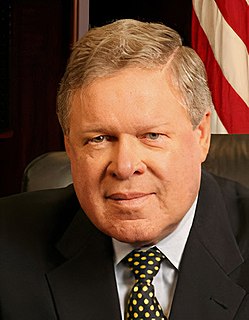A Quote by Jared Polis
The NSA has broken privacy rules or overstepped its legal authority thousands of times a year since Congress gave it broad new powers in 2008.
Related Quotes
Literally minutes before the Senate cast its vote, the administration sought to add the words 'in the United States and' after 'appropriate force' in the agreed-upon text. This last-minute change would have given the president broad authority to exercise expansive powers not just overseas-where we all understood he wanted authority to act-but right here in the United States, potentially against American citizens. I could see no justification for Congress to accede to this extraordinary request for additional authority. I refused.
The Constitution, in addition to delegating certain enumerated powers to Congress, places whole areas outside the reach of Congress' regulatory authority. The First Amendment, for example, is fittingly celebrated for preventing Congress from "prohibiting the free exercise" of religion or "abridging the freedom of speech." The Second Amendment similarly appears to contain an express limitation on the government's authority.
We're now more than a year since my NSA revelations, and despite numerous hours of testimony before Congress, despite tons of off-the-record quotes from anonymous officials who have an ax to grind, not a single US official, not a single representative of the United States government, has ever pointed to a single case of individualized harm caused by these revelations. This, despite the fact that former NSA director Keith Alexander said this would cause grave and irrevocable harm to the nation.
































